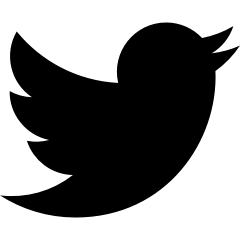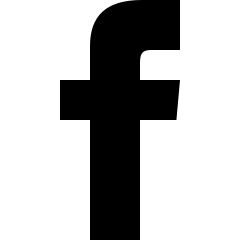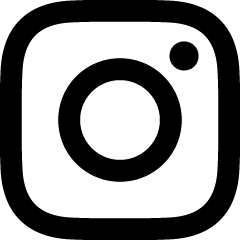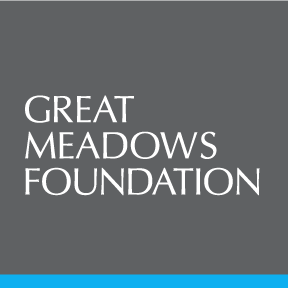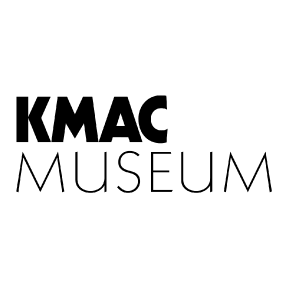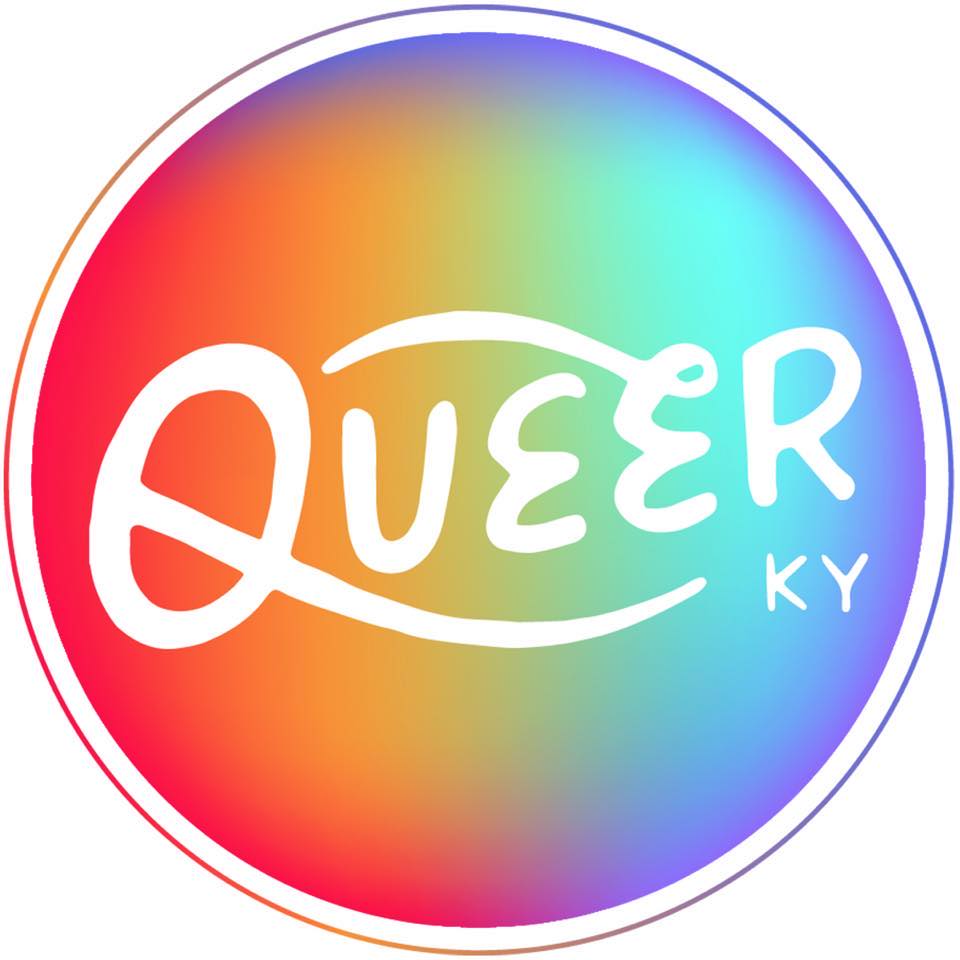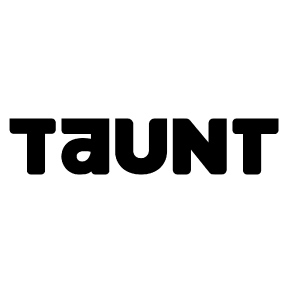
PHOTO: Courtesy of Mickie Winters
A Conversation with Ourselves:
Roundtable on a first year in arts journalism
Originally Published in The Annual, Vol 1Thoughts On
The Staff of Ruckus
So what was happening a year ago?
K: A year ago, mid January... We were finalizing details, right?
L: Yeah, we were probably in your apartment, Kevin.
K: We had landed upon a mission.
M: We had a name by that point.
L: We knew the general shape of what we wanted. I remember at this point last year, we were just tip-toeing to the edge of the diving board, and then I think it was you Kevin, that was just like, “No, we're doing it on this weekend.”
K: Oh yeah. [laughs] I think I wrote the first review and was like, “It’s time.”
Months before we launched our website, how did the idea come about for Ruckus?
K: A lot of complaining. Anxiety, depression.
L: A lot of worry.
M: I think some it came from being in that place of having graduated art school and supposedly being in the “real world,” making art, looking at art and navigating that, but then finding these problems with how art is valued and how art is assigned value, assigned importance in this community.
L: The way that I kept thinking about it in my head was that there was this always-present feeling of needing an adult in the art community here. Or just that there was no organizing armature to what anybody was doing. Nobody was getting snaps. Nobody was getting retweeted.
M: I distinctly remember a Facebook post that Kevin made.
K: [laughs] I know the one. I got a little bit of flack from that. It was after I saw this article LEO posted. It wasn't just a staff pick, it was a full article about the show at B. Deemer—I don’t remember the artist—but it was idyllic landscapes or something. I shared the article and said, “Welcome to the ouroboros of mediocrity: Safe, boring art is purchased—safe, boring art is ‘successful’—safe, boring art is being written about.”
L: It was so frustrating to see an abandon of any otherwise, professional metrics of success. It was just what's saleable, which is just not necessarily a part of the conversation within the last 100 years.
M: And what is saleable in Louisville? The buyers here are looking for things to go over their couches and they're not, in that context, concerned with the greater social and political climate in which art exists, even though there are local artists that are participating in that conversation. Artists are doing important work here, but they get overlooked because it might not look nice over your sofa.
L: Right. The people who are buying that kind of work don't conceive of themselves as collectors impacting an ecosystem or influencing an economy.
K: Well, they might think as far as, “Look, I bought work from a local artist,” but that's it.
M: Of course, it's not to say that's a bad thing. If people want to paint landscapes, they should. If they want to buy landscapes, they should. But then it's upheld as if it's the pinnacle of fine art and it’s all that’s written about.
L: I don't think any of us set out, when we started Ruckus, to make our message “Poo poo on horse art.” It was to introduce alternative narratives to just this one singular message that the Louisville area was putting out as “art forward,” at least for our entire lifetimes.
M: Also, working in a museum, we were paying attention to what was being written about KMAC and I remember being frustrated when somebody would write a “review” of a show and it was just, “This is happening at this place and time, and you should go.”
K: It’s funny, stuff like that continues to happen. Galleries share publications saying “Here's the review of our show.” And it isn't a review—it’s an advertisement.
L: It's the facts.
M: [laughs] That information is necessary, but we, as a community, can delve a little deeper. I think we're capable of that.
Where did the name Ruckus come from?
L: In those early conversations, I think we knew that if we wanted press about art to look more like what we wanted and needed, somebody would have to cause a scene or a stir. What we ultimately ended up on was “Ruckus.” It seemed not only terse and dynamic, but also colloquially appropriate.
M: It’s fun!
K: If you all remember going through the inane task where everyone wrote a list of five names and then trying to select from that, Ruckus ended up being the only one.
L: What a snowball this has been since that. Think of all the Google Docs we've made. [laughs]
We’ve addressed this a little bit already, but why does a city like Louisville need art criticism? Why do we need a Ruckus, so to speak?
L: I always try and compare what we do to scientific peer review. You can claim whatever you want from whatever experiment you're doing in your lab, but unless other people, scientists or whatever in this metaphor, can reproduce the results, then it's not taken as being worthwhile. Or those perspectives aren't necessarily worth introducing into the canon of scientific knowledge. I think that's a lot of what we're doing. We're just trying to publicize these thoughts, these analyses, these perspectives in such a way that other people can vet them. We're just the first segment of that. We’re just the ones putting it out there, and then our readers are the people that vet this perspective.
M: Right. Readers can disagree with us.
K: It's also important to think about the way that work in Louisville plays into larger dialogues. It's not created in a vacuum. I think both readers and the artists themselves can learn a lot more from contextualizing artwork in Louisville.
L: And enjoy it more. I mean, there's such a richness to appropriately researched context. It's a real gift when somebody does that.
M: I think we all agree that art criticism benefits the city, the local artists, and the surrounding community. One of our goals is to bring attention to artists and institutions in Louisville that are engaging in larger conversations and creating or showcasing high caliber art right here.
K: Highlighting well-considered art, yeah. Centered, thoughtful, conceptual art.
L: Criticism solidifies the feeling of being witnessed as an artist. And when you're witnessed, you know you can give it your all and it matters. At least, as a working artist myself, that's how I feel. If I know that I'm doing something for an audience, it's worth going all out for, and I definitely felt like that was missing beforehand when I lived here.
M: Yeah. We're kind of documenting the fact that there is an audience.
L: And then putting it in a language such that people who don't conceive of themselves as being part of a fine art audience can still participate, and it's not scary, and you don't have to use fancy quasi-real art words.
M: I think that having critical dialogue around the art being made here can also help put the city on the map—almost like you were saying about how having peer review validates research. We can, by reviewing these artists, validate their work and what they're doing. It builds them up and hopefully can help them succeed in their careers.
How has Ruckus grown over the last year?
K: It all happened in a very grassroots way to get to this point, just through people who are willing to volunteer their time. Outside of our own efforts, this year we brought in one regular contributor and four guest writers. And we just kept at it, doing so enough to get noticed by Great Meadows—having them believe in our project has allowed us to expand further in 2019.
M: There's a huge difference in where I thought we would be at this point and where we are. I did not think that we would have so many contributing writers who have taken the time to visit exhibitions and write about exhibitions for us. I am amazed at how seriously we’re being taken by gallerists, artists, and people in the community who are happy to see the work that we're doing.
L: All of that speaks again to the need for criticism to make the food chain of contemporary art work. You know, there's a missing part; there's not been criticism like that. The welcoming that I think we’ve felt is in part due to that.
K: Now if we had collectors, it would be a fully functioning ecosystem where artists aren't starving.
L: So if you're out there, old money…
M: Or new money. [laughs] Any money!
So that's how the community has responded. What about artists? Do you think artists are ready to face criticism?
M: I feel like there's a bit of a wariness, at least up until this point. With the lack of criticism, I think people have felt afraid of receiving any negative feedback on their work, and so publications have been afraid to deliver that.
L: They would be afraid of burning bridges or something like that.
K: An interesting thing Megan Bickel said during my interview with her was that the culture around supporting artists has been so fervent that everyone's scared to do anything.
L: Oh, right—to tear down their own kind.
M: It’s funny to me that actual negative criticism is not seen as support. It's seen as tearing an artist down or chipping away at their credibility, when it should be something that builds artists up and encourages them to work harder, maybe change direction with what they're doing, and to learn from it. There's just so much politeness, but I think you can be polite and be negative or critical.
L: Or constructive. I mean, the rules of art are constantly being rewritten, but I feel like right now especially, there's a lot of uncertainty, so we need some people who are going to come forward with some hot takes.
M: Yeah. Try to parse things.
L: Parse things and build a new framework. I'm thinking specifically in a place like KMAC where Ruckus started in a way—its perspective is this particular fusion of contemporary craft and contemporary art, which is not one that I necessarily always agree with. But you know, it's a good example of somebody getting out there, kind of writing a new theory which is part of the work to make meaning of any of this.
What do you feel like Ruckus is missing right now? What are the holes we see that we need to cover?
K: More diverse voices in terms of authorship.
L: Yeah—just acknowledging our whiteness, to me, is something that is worth saying at the front of this book.
M: And we’re all art school graduates from similar class backgrounds, and we're around the same age. There are all these demographics where we overlap. So, yeah acknowledging that and then looking to correct that and expand our lens.
What exciting things are on the horizon for Ruckus?
K: We’ve got some really great articles planned for February and March!
M: One exciting thing that's recent is that, as of January 2019, we are receiving funding from Great Meadows Foundation! We're able to pay our writers this year, which really legitimizes the whole project. And I’m thrilled we'll be able to recognize our writers for the time and labor that they're putting into our work.
L: And there's a lot. I feel like we're in the thousands of hours collectively on this project, which is really incredible to think about. It was charming and necessary at the start of this project that it was all volunteer-driven. That's a certain kind of energy, but if we want to convince other people longterm that writing is valuable, then we need to like make it our first priority to pay the people who are doing the writing and make that the model—not just that constant trap of “working for visibility.” We're all very excited about that step.
What are some ways that folks can support Ruckus?
K: Subscribe to our Patreon!
M: Subscribe to emails, follow us, like and share our posts! And if you know other artists, if you are moving through these communities, talk about what we're doing. It's not scary!
L: And also, just read it. That's so powerful.
K: Yeah. I'm amazed every time someone's like, “Oh yeah, I read that article last week” because like, you what?
L: That's the best support I can think of. Even if we're broke to the end of time, if people are actually reading it, that's amazing.
M: And reach out! If you want to write for us, check out the submission guidelines on our website. And know that writing a review for us is a supportive process. We're here trying to put out some good content, and we want to help you through that process and make it as pleasant as possible for everyone involved.
L: I like to think that we're pretty easy to work with.
Since this is Annual is like our “yearbook,” let’s close out with everyone’s inspirational quote for 2018.
M: “You can best serve civilization by being against what usually passes for it.” - Wendell Berry
L: “It’s such erasure in movies when they act lke the butler is straight.” - Pat Regan
K: “Walk a mile in my Thigh Highs B4 you Disrespect me!” - Cher, via Twitter
-
Originally published by the staff of Ruckus in The Annual, Vol. 1
3.31.19
